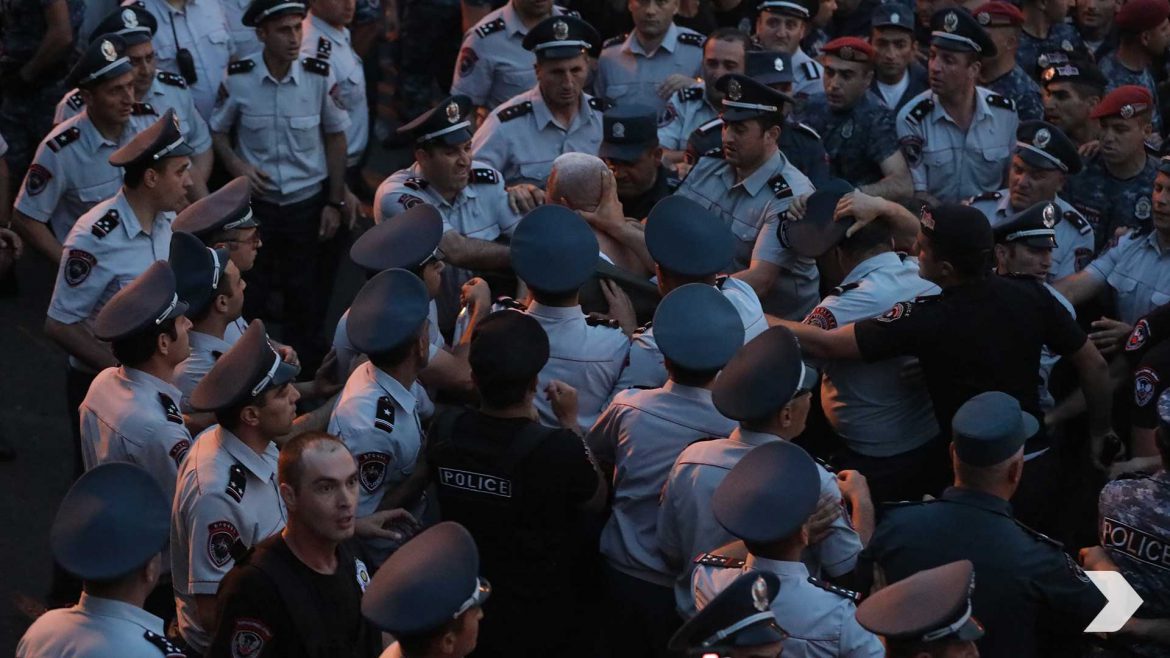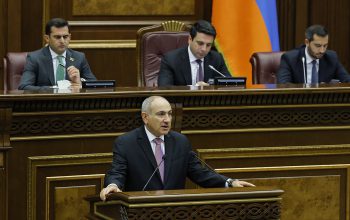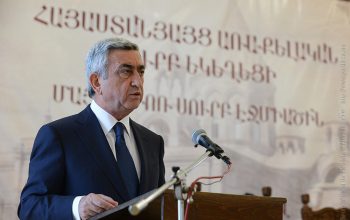By Lillian Avedian, Armenian Weekly
Violent clashes between protesters and police officers marked the start of the second month of opposition protests demanding the resignation of Armenian Prime Minister Nikol Pashinyan.
Health officials reported that 60 people, 39 of whom were police officers, received medical treatment after a demonstration outside the prime minister’s official residence Friday evening turned violent.
The Armenia Alliance and the I Have Honor Alliance, the two opposition parliamentary factions, have organized demonstrations since April 25 in response to what they see as the government’s readiness to cede Artsakh to Azerbaijan. The movement emerged in response to a speech delivered by Pashinyan on April 13 in which he said Armenia should “lower the bar” on the status of Artsakh in negotiations on a peace deal with Azerbaijan.
On June 3, protesters marched to the prime minister’s office after the ruling party boycotted an emergency parliamentary session called by the opposition. The opposition planned to push through a parliamentary resolution stating that Pashinyan cannot surrender Artsakh to Azerbaijan or make any other territorial concessions during the course of the planned demarcation of the Armenia-Azerbaijan border.
Parliament speaker Alen Simonyan had said that the Civil Contract Party would boycott the session, which he called an attempt to strengthen the failed opposition campaign.
Opposition leaders condemned the boycott by the ruling party.
“For whom is it not clear, that if Artsakh becomes part of Azerbaijan, there will be no Armenians left in Artsakh?” Armenia Alliance MP Armen Rustamyan told reporters. “If we don’t want Artsakh to end up under Azerbaijani rule, we must oust these authorities.”
Thousands of protesters blocked all of the entrances to the government building for two hours before marching toward Pashinyan’s official residence. They were met with hundreds of riot police at the intersection of Proshyan-Demirchyan near the building. Police hit the demonstrators with batons and shields and threw stun grenades into crowds of protesters.
Law enforcement officials and opposition leaders blamed each other for the day’s violence.
Eleven people were detained by the police, because they “did not obey the legal demands by law enforcement officials, inflicted violence against them, as well as threw bottles, rocks and metal objects at the police,” according to law enforcement authorities.
The Investigative Committee of Armenia brought criminal charges against 15 people for “starting a mass riot” and “endangering public safety.”
Armenia Alliance MP Gegham Manukyan said that the injuries sustained by the police were self-inflicted, as the police mishandled the stun grenades.
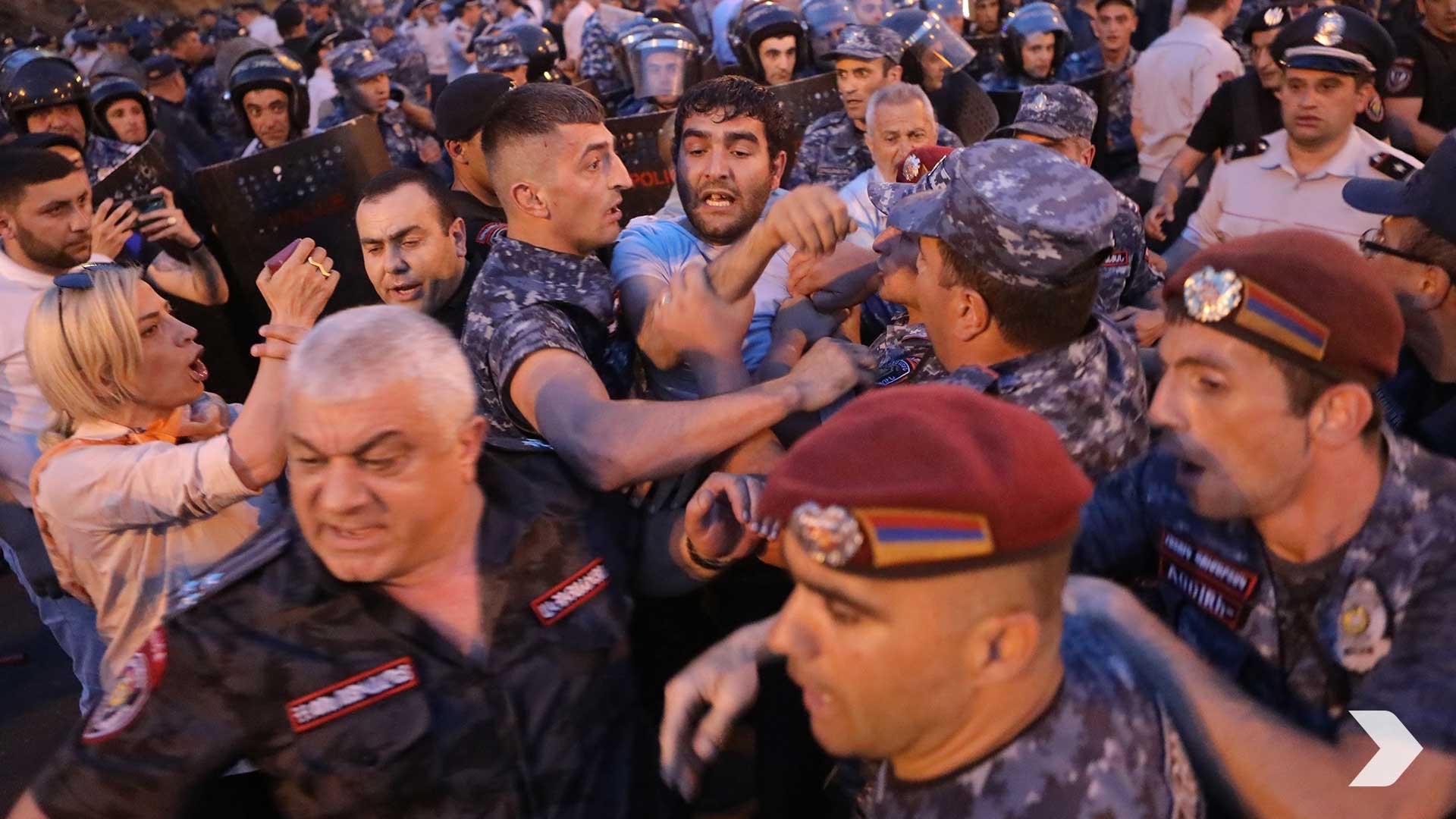
“Those who fired and their commanders should be tried or beaten up by other policemen for the fact that they are so unprofessional that they didn’t learn how to use those special means,” Manukyan told reporters.
Armenia’s Human Rights Defender Kristine Grigoryan criticized violence inflicted by both the police and protesters. Grigoryan called the “disproportionate use of force by police servicemen and the use of force against police servicemen by the protesters inadmissible.”
The Ombudswoman further denounced the “incitement and justification of hate speech and polarization in public discourse” by the organizers of the protests.
“Public figures should refrain from such calls and speech, not to create further tensions within the society,” Grigoryan wrote on Facebook.
Daniel Iannosyan, a democracy activist at the Union of Informed Citizens, said that both the police and protesters were to blame for the violent escalation of Friday’s protest. He called marching to the government residence an “aggressive move” by the protesters, yet said that the police should have tried to deescalate the protests before firing stun grenades.
“It is not surprising that, after listening to more than a month of rhetoric of violence, a number of participants in the protest started to show aggressive (not peaceful) behavior,” Iannosyan wrote on Facebook.
On Tuesday, hundreds of protesters marched to the EU Delegation building in Yerevan to condemn its “silence” on the violent police crackdown on protests.
Armenia Alliance MP Aram Vardevanyan said that the EU responded to violent actions by the police during the Velvet Revolution that brought Pashinyan to power in 2018.
“But it is silent now,” Vardevanyan said. “And with this silence it is encouraging police brutality.”
“You must make a choice in Armenia. Do you support European values, democracy and the rule of law or Nikol’s rule?” Armenia Alliance MP Anna Grigoryan posed.
Head of the EU Delegation to Armenia Andrea Wiktorin first commented on the demonstrations on May 10 when she said that police must “adhere to all laws and rules” and “not have impunity.”
“But at the same time, I’d like to say that there could be different provocations, and I would ask myself what can be done in case of such provocations,” Wiktorin continued.
On June 8, she called on all sides to “reduce tensions” and “work together to protect the constitutional rights of the citizens of Armenia.”
“It’s very important for the people to be able to voice their opinion freely, and law enforcement agencies and police forces should refrain from using brute force. Some incidents that have taken place should be investigated. It has already happened in some cases. The cases reach the court and a ruling is made. That’s how democracy works,” she said.
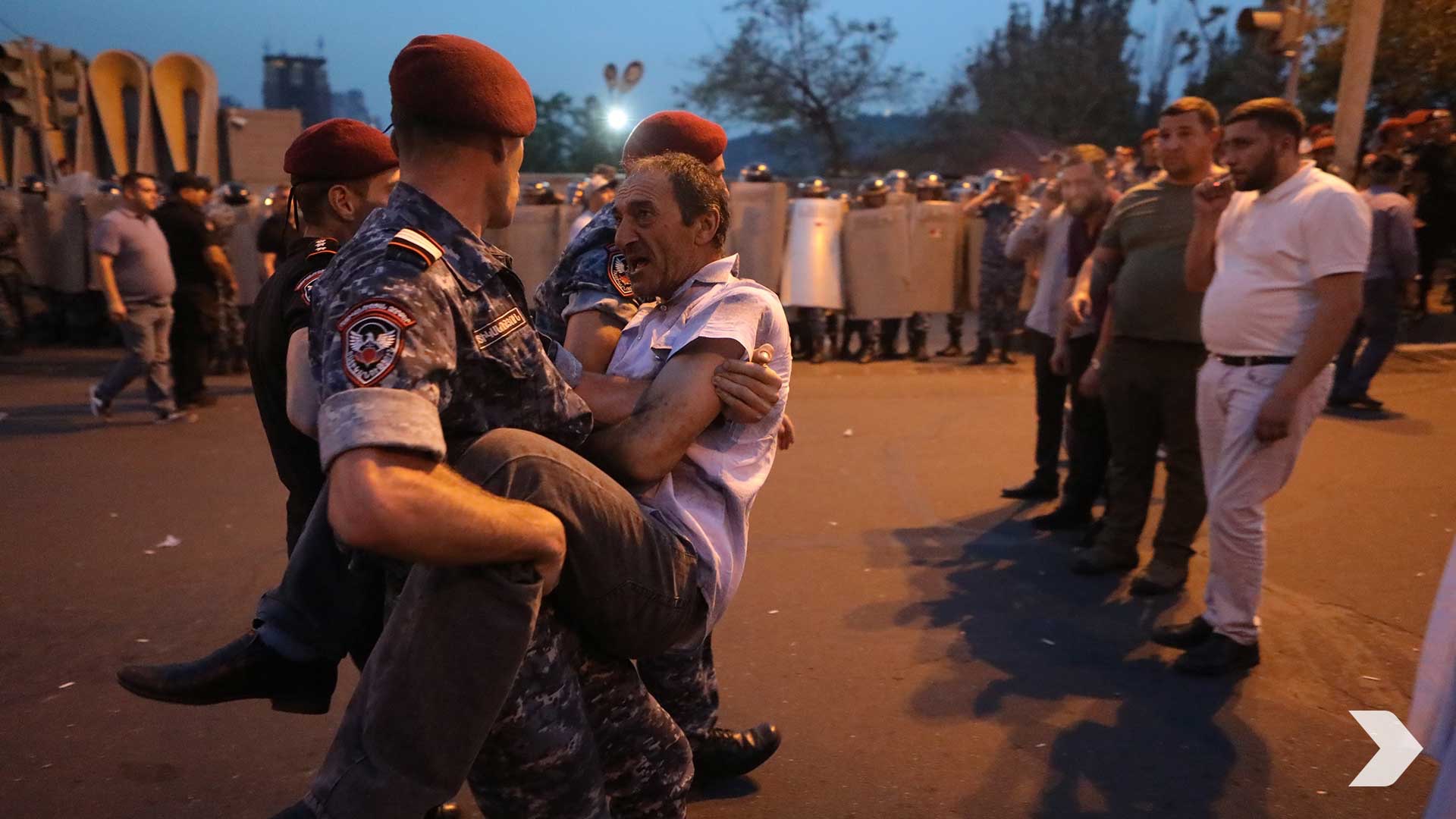
Lillian Avedian is a staff writer for the Armenian Weekly. Her writing has also been published in the Los Angeles Review of Books, Hetq and the Daily Californian. She is pursuing master’s degrees in Journalism and Near Eastern Studies at New York University. A human rights journalist and feminist poet, Lillian’s first poetry collection Journey to Tatev was released with Girls on Key Press in spring of 2021.

